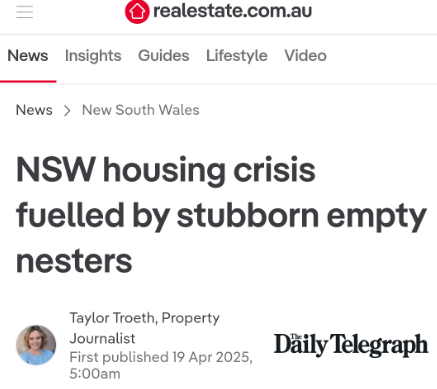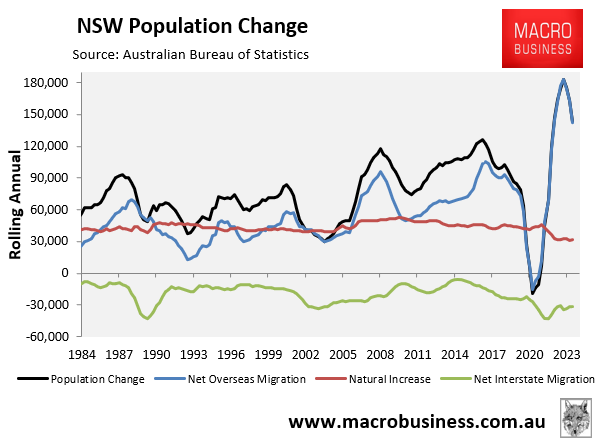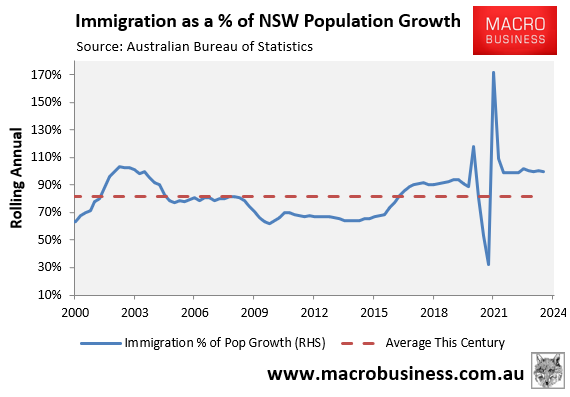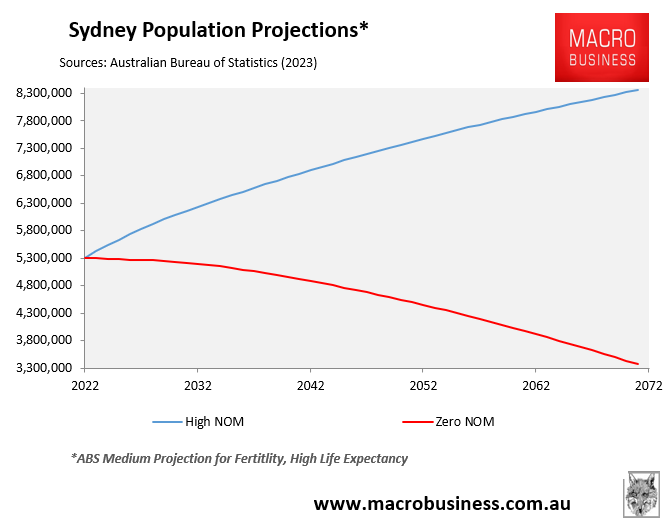I have read some poor housing analyses in my time, but few are as awful as the Daily Telegraph’s Taylor Troeth, who blamed “stubborn empty nesters” for fueling NSW’s housing crisis.

Troeth cites research from Australian Seniors showing that two-thirds of empty nesters in NSW “were still living in large family homes with no plans to sell, despite research showing this could free up nearly 60,000 desperately needed properties across the country for younger Australians”.
Taylor Troeth should examine the following chart plotting population growth in NSW.

In 2023-24, NSW’s population grew by 143,200, with virtually all of this growth (142,500) coming via net overseas migration.
This century, net overseas migration has accounted for 81% of NSW’s population growth.

In number terms, NSW’s population has increased by 2,074,400 since the turn of the century, with 1,687,000 coming via net overseas migration.
These 1,687,000 net overseas migrants that have landed in NSW would have required around 700,000 homes based on average occupancy rates.
In summary, the number one cause of NSW’s housing shortage is excessive migration, given that it is the sole driver of the state’s population growth— i.e., immediately as migrants step off the plane and subsequently as they have children.
As illustrated in the following chart derived from the Australian Bureau of Statistics’ population projections, NSW’s future population and housing demand will be determined solely by the level of net overseas migration.

Maintaining a high level of immigration would result in Sydney’s population swelling by around 3 million people by the early 2070s. By contrast, zero net overseas migration would see Sydney’s population and housing demand fall.
Therefore, any concerns about NSW’s housing shortages should be directed at the federal government’s ‘Big Australia’ immigration policy and not at empty nesters.

